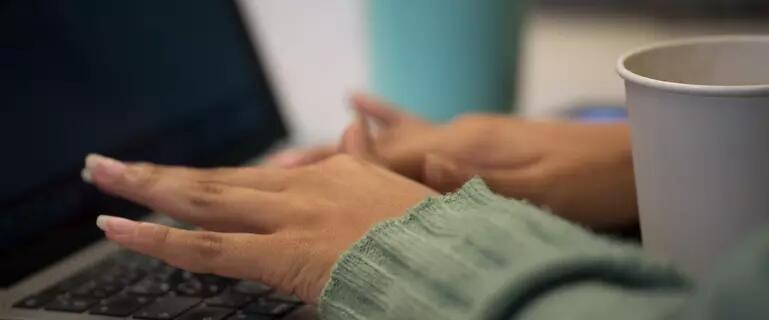
Master of Global Affairs students adjust to a new world of work
Professional development team helps MGA students stay nimble
The ongoing global pandemic is changing the way we work and graduates of the Master of Global Affairs (MGA) program are heading into a job market unlike that of previous cohorts. Through all of the changes brought on by COVID-19, the MGA’s Office of Professional Development and Career Strategies (PDACS) team has been helping students rethink their professional goals.
While job and internship placements saw a slowdown at the very beginning of the pandemic, Sole Fernandez, MGA professional development and alumni relations coordinator, says there are still plenty of opportunities for students to receive the resources and support they need most. “Our work has multiplied, the anxiety level has skyrocketed so it’s just about providing more assurances that everything is going to be okay,” she explained.
“We had about 30 cancelled internships, but we found new partners,” Heather Bruce, global internships coordinator for the MGA program, explained. “The faculty really came through and used their professional networks and industry connections to support students in finding innovative opportunities.” These opportunities are, of course, exclusively remote. This posed another chance for the team to spring into action, helping students adjust to job hunting, onboarding and integrating with new teams by exclusively virtual means.
Students like Adiba Hasan have felt that support throughout the last few months in the form of one-on-one chats, workshops and connecting with alumni. “Sole has been the rock for a lot of students. She’s been so supportive while she’s working for 100 more students that are coming in this year,” she explained, adding that there have been workshops focused on topics like resume development and using Excel. “Over the summer she got of all the alumni together, and we had a lot of alumni coffee chats.”
These virtual connections would prove to be some of the most important. “[The coffee chats with alumni] is how I actually started building my network,” said graduate Dulce Calderon. “We also had a career week, which is where I started meeting other professionals.”
Fernandez echoed this, adding that workshops on virtual networking via LinkedIn and job search strategies were among the first they developed. Along with new ways of finding work, came new opportunities; some vastly different than those they may have initially envisioned for themselves.
“Coffee chats [with alumni] is how I actually started building my network. We also had a career week, which is where I started meeting other professionals.”
- Dulce Calderon, MGA '20
“As you can imagine, students were thinking they would go abroad for their internship and then travel was restricted,” Bruce explained. “Our response to that was that our students shouldn’t be penalized for that. We had to adapt.” That adaptation in the face of new circumstances came in the form of a whole new summer semester, created for a small group of students who had to push their internships to the fall.
Fernandez says students have been making the appropriate adjustments, leaning into industries they may not have been considering coming into the program. “In terms of the jobs coming up, there are lots of contract positions for special projects that are COVID-related,” she said. “I’m seeing more people go into research and private sector roles as opposed to NGO positions.”
With comprehensive training and the unwavering support of coordinators like Bruce and Fernandez, students are finding fulfilling internships and full-time positions in spaces they may not have previously thought about. In a job market—and world—that will be forever impacted by the global pandemic, being able to roll with the punches is the key to success. “We’re encouraging students to continue to think about adaptability and flexibility, and really think outside the box,” Bruce added. “Travel is a huge draw for this program, but I think this has helped students to look inward and ask themselves what they truly care about doing.”

